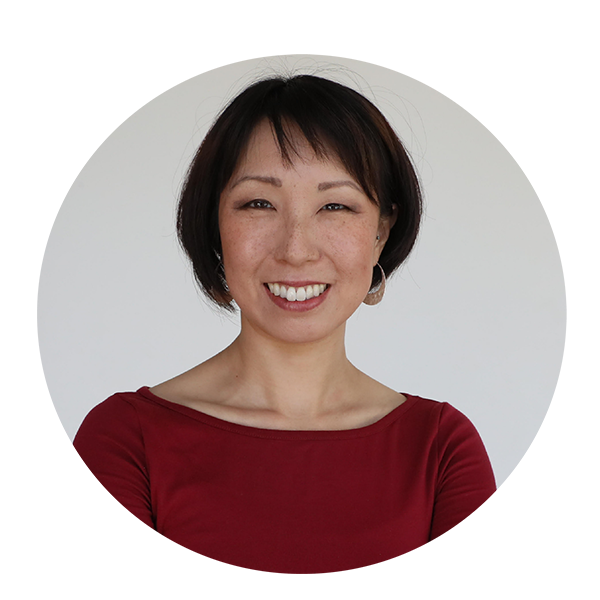A Busy Woman's Guide to Learning to Rest
by Justine Toh

Sophia is the Greek word for Wisdom, and Propel Sophia seeks out the voices of truly wise women and asks them to share worked examples of how they express faith in daily life. Pull up a chair at Sophia’s table, won’t you? There’s plenty of space.
LEARN MORE HERE ▸
In the middle of Sydney’s four-month lockdown last year, I released Achievement Addiction, a mini book exploring our cultural obsession with success while also providing me extensive and unofficial therapy to work through my own issues with achievement. The book made its debut, however, just as I was living the impossibility of achieving anything.
Ironic? Sure. But in retrospect, it was God’s perfect timing.
Lockdown was a collective experience of people failing at everything simultaneously: working from home, home-schooling, keeping house, and trying to stay sane without the support networks of normal, pandemic-free life. If you’re the type of person to get a buzz every time you achieve a goal, then lockdown felt like a grand conspiracy to deny you a fix. By cranking up the demands in every area of life, lockdown rubbed in our faces our inability to get anything done.
So, I quit! Not in a Great Resignation-kind of way. I continued working, wife-ing, being a mum, and a lousy teacher. But I got off the performance treadmill in a big way. I redefined success as just getting through the day. (Though I continued to flinch at the ever-increasing numbers of incomplete home-schooling activities.)
I suppose you could say I became a recovering achievement addict. I’d found that trying to live up to unrealistic expectations was just no way to live. The ego trips from accomplishing things weren’t, in the end, worth it. It was just a lot of mental torture for no lasting satisfaction.
Yet now I have a new problem, one that awaits everyone who wants to kick their own addiction to achievement: what does it mean to rest?
Rest for Recovering Achievement Addicts
I’ve never been good at rest. I don’t prioritise it. I’m anxious I won’t ace it (!). I have terrible boundaries, which means that I let work bleed into non-work time. (This was drafted at 3.30am). I struggle with feeling unproductive.
Which is why I couldn’t properly relax during a week-long break from work once the kids were back in school. The only thing I wanted to do was weep with relief that lockdown was over, but I only felt ready to start resting on the eve of my return to the office. The experience wasn’t optimal, but it’s not as though I’m grading my performance.
Yet in that restless time, there came a profound realisation: that the only time my mind stopped racing with all the things I needed to do and all the things I’d left undone was when I read a physical book, or put pen to paper, or prayed, or happened to be awake when everyone else was asleep (and not asking anything of me). Since I could do without the insomnia, I’m trying for more of the first three in my life. It’s dawning on me why these are such restful habits: because they make me lean more into being rather than doing. In each of these, I wasn’t being productive but I was fully present. I believe that, ultimately, they help me receive God’s gift of himself.
Learning to *be*, not just do
To that end, Psalm 131 has been a lifeline. Especially verse 2: “I have stilled and quietened my soul; like a weaned child with its mother, like a weaned child is my soul within me”. The achievement addict is the exact opposite of this depiction of profound contentment. The addict is always grasping at something: the next win, the need for validation, the reassurance that their life adds up to something. Yet satisfaction is short-lived.
But the weaned child of the soul knows the peace that the addict knows not. Even if the child is no longer fed by their mother’s breast, their deep connection with her remains. There is no turmoil or fear but instead full awareness that satisfaction is near without needing to grab at it. I can think of no better cure for the recovering achievement addict than a rest that looks like this.
I plan to slowly add more habits of rest as they are revealed to me. I know they’ll be worth the wait. One of the most powerful aspects of rest, I’m realising, is the quality of attention it nurtures: one that is alert and engaged without being distracted or harassed. No matter the activity, when I am in that state, I am receptive to the promptings of the Spirit that would otherwise be drowned out by my manic inner monologue.
Those nudges are also a reminder that satisfaction is not found by looking within ourselves, nor is it a reward for all our hard work. Rather, satisfaction is the result of the grateful recognition that we have always been, and will always be, loved and beheld by God. Not because we loved God, but because he loved us first.These are truths to let sink deep into the soul. A whole life spent discovering their riches would, I suspect, not be enough time. No matter, though. I can’t imagine a better way to spend eternity.
JUSTINE TOH
Justine Toh is Senior Fellow at the Centre for Public Christianity in Sydney, Australia, and the author of Achievement Addiction. Find her on Twitter @justinetoh and LinkedIn. For more information about Achievement Addiction, go to www.reconsidering.com.au.
